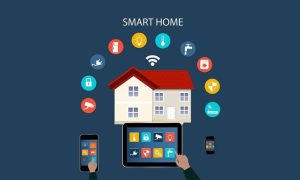Smart homes are no longer a futuristic concept; they are here, transforming our living spaces into hubs of convenience, security, and energy efficiency. Smart home integration refers to the seamless connection of various home devices and appliances through the Internet of Things (IoT), allowing centralized control and automation.
Viagogodirect | Sportmasteries | PrimeSportZone | eipds | SportPowerHub
The Core of Integration
At the heart of smart home technology lies the principle of integration. This involves linking devices like thermostats, lighting systems, security cameras, and kitchen appliances to a shared network. The integration enables these devices to communicate with each other and be managed remotely via smartphones or voice assistants.
Benefits of Smart Home Integration
The advantages of integrating innovative technology into your home are manifold:
- It offers unmatched convenience. Imagine adjusting your home’s temperature, lighting, and security settings with a few taps on your smartphone.
- It enhances security, providing peace of mind through real-time alerts and remote monitoring capabilities.
- It promotes energy efficiency by automating tasks like adjusting the thermostat and turning off lights, potentially lowering utility bills.

Choosing the Right Platform
A crucial step in smart home integration is selecting the right platform. Popular options include Apple’s HomeKit, Google Assistant, and Amazon Alexa. Each platform has its strengths and compatibility range, so choosing one that aligns with your devices and lifestyle needs is essential.
businesstlkjest | Race-Casino | clicknaturephoto | adultshowbiz | theautospaces
Implementation and Compatibility
Implementing smart home technology starts with ensuring device compatibility. Not all devices work together seamlessly, so checking if they are compatible with your chosen platform is essential. Additionally, consider the connectivity requirements, such as Wi-Fi strength, to ensure smooth operation.
Privacy and Security Considerations
With the convenience of smart homes comes a concern for privacy and security. It’s vital to secure your network and devices against unauthorized access. Regularly updating software, using strong passwords, and employing encryption can safeguard your smart home against potential threats.
realmrumor | liveshowideas | admediastudio | couriercompaniez | newztalking
The Future of Smart Homes
The future of smart homes is promising, with advancements in AI and machine learning paving the way for more intuitive and autonomous home environments. We can anticipate homes that not only respond to our commands but also anticipate our needs, making our lives more comfortable and efficient.
Viaava | zyquill | plusehub | SportStarPlace | Moneymmirage
Conclusion
Smart home integration represents a significant leap towards creating homes that cater to our convenience, security, and efficiency needs. By carefully selecting compatible devices and platforms and paying heed to security measures, we can fully harness the potential of smart home technology. As we move forward, the evolution of smart homes will continue to